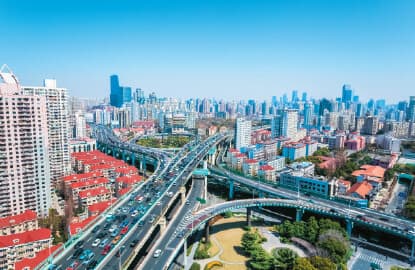
Most investments will generate positive single-digit returns over the next five years, largely due to slow economic growth and persistent low interest rates, says US-based wealth and asset management firm Northern Trust.
In its Capital Market Assumptions Five-Year Outlook: 2016 edition, released on Aug 15, the company forecast returns of 5.8% for global equities and 2.1% for investment-grade bonds in the next five years. The total returns on real assets are expected to range from 5.6% to 6.9% while the total returns on alternative investments are expected to be between 3.4% and 7.4%.
The report notes that while fixed-income returns will be hobbled by a low-yield starting point, the low-yield continuation supports prices. Some pressures on fundamentals will be offset by demand for yield, supporting credit.
“Investment-grade fixed-income total return forecasts benefit from our expectations of slight credit spread tightening and continued low interest rates (below what is priced into the markets), allowing expected total returns to outpace the low-yield starting point,” the report says.
“In high yield, higher yields combined with an expectation of a manageable default environment makes the asset class attractive. We expect total returns in the mid-single-digit range. We view high yield as attractive in an environment of low interest rates and continued easy monetary policy.”
Developed market equities will provide moderate returns. While slowing global growth may hurt the revenue outlook for companies, low inflation and low interest rates support profit margins and ease valuation contraction.
“Valuations are expensive, but we expect them to remain that way because most fixed-income investments do not offer a compelling alternative in a continued low-rate environment. We have maintained dividend yield assumptions at current levels, resulting in a 5.4% total return expectation,” says the report.
Barring a hard landing in China, the outlook is brighter for emerging market equities, where valuations should remain steady over the next half a decade. This should support revenues, although that will be slightly offset by a dilution in earnings.
“We expect per-share income to come under pressure by continuing liberal share issuance policies and margin contraction from rising labour costs … Emerging market valuations are well below those of developed markets, but we find this to be justified due to the risks that remain in emerging markets. A 2.8% dividend yield projection results in a 7.3% total return expectation.”
If oil prices remain stable or move higher over the next five years, real assets such as global listed infrastructure will attract investors in a low-rate world due to its role as a “bond market proxy”. Many infrastructure assets have similar revenue streams to bonds.
“Valuations across infrastructure-related sectors (for example, utilities) have benefited from falling interest rates, and energy-related components are recovering from the fall in oil prices … Developed economy infrastructure needs also support demand. We expect a 5.6% total return,” the report says.
Wayne Bowers, chief investment officer for Northern Trust asset management in Europe, Middle East, Africa and Asia-Pacific, says in the company’s press release that developed economies overall will continue their slow pace and he expects an annual real economic growth rate of 1.4% over the next five years. The outlook for emerging economies remains similarly subdued.
“Ultimately, while concerns over slow growth are further impeding global growth, investors need to resist becoming bearish during market weakness or bullish when the economy appears strong. And instead, scrutinise any future dramatic swings — positive or negative,” says Bowers.
These forecasts are driven primarily as what the company terms the “slow-growth angst”. Northern Trust chief investment strategist Jim McDonald says while the company expects markets to be volatile at times, it remains convinced the global economy is in a narrow and slow growth channel.
“Current regulatory and fiscal policies have greatly restricted the boom-bust cycles. And although the risk of a recession increases, if one does materialise, it should be shallow due to a lack of economic excess and financial system stability,” he adds.
Northern Trust’s capital market assumption team says another key theme that will affect investors in the years ahead is market cycles in a cycle-less economy. “Tougher regulations have prevented excess build-up in the economy or bubbles in financial markets; austerity can be reversed, acting as a counter-cyclical tool. These dynamics are creating a cycle-less economy. The cycle-less economy also extends to cycle-less monetary policy. For years, the markets attempted to put a ‘semi-normal’ trajectory for US Fed fund rate hikes in place.
“This trajectory was mostly maintained — just pushed out — in 2014 and 2015. But now, catalysed by Brexit, the markets have removed the cycle. Economic upside is limited, but we also believe a lack of economic excess will limit any major downside.”
Another theme to watch out for is “Stuck-flation”, where “the combination of ample available supply, sluggish demand and low future inflation expectations make it difficult for central bankers to dislodge ‘stuck’ inflation over the next five years”.
“Central bankers are intent on raising inflation to more normal levels. Doing so assists in debt servicing and provides incentive to consume. But across most developed economies, inflation expectations remain stuck below the widely used 2% target. Even the spectre of higher wages and energy prices has failed to lift the market’s inflation expectations. Investors seem to believe slow-growing demand will dominate the inflation picture,” says the report.
Northern Trust is a provider of wealth management, asset servicing, asset management and banking services to corporations, institutions, and affluent families and individuals.
Save by subscribing to us for your print and/or digital copy.
P/S: The Edge is also available on Apple's AppStore and Androids' Google Play.